★★★½
“Intermittently awesome.”
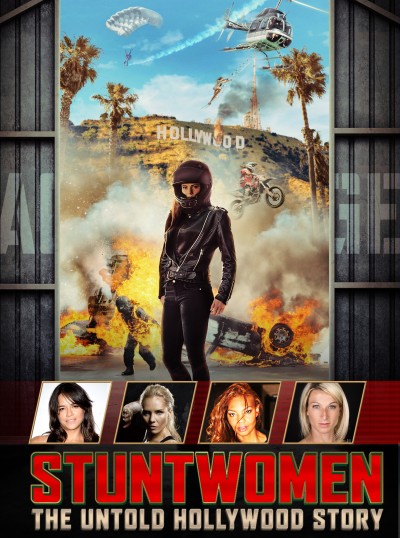 Regular readers will already be aware of the long history of stuntwomen, going back a hundred years to the serial heroines of the silent era. But there’s still a lot to be learned from this documentary about these fearless, and largely unsung, daredevils. Narrated by Rodriguez, it’s mostly a series of discussions between OG stuntwomen, like Epper, who was Lynda Carter’s double in Wonder Woman (and who passed away earlier this year), and members of the current generation, such as Amy Johnston, of Lady Bloodfight fame. The anecdotes shared by the former are an often fascinating insight into the struggles to be taken seriously, in a time when many directors would rather slap a wig on a stuntman.
Regular readers will already be aware of the long history of stuntwomen, going back a hundred years to the serial heroines of the silent era. But there’s still a lot to be learned from this documentary about these fearless, and largely unsung, daredevils. Narrated by Rodriguez, it’s mostly a series of discussions between OG stuntwomen, like Epper, who was Lynda Carter’s double in Wonder Woman (and who passed away earlier this year), and members of the current generation, such as Amy Johnston, of Lady Bloodfight fame. The anecdotes shared by the former are an often fascinating insight into the struggles to be taken seriously, in a time when many directors would rather slap a wig on a stuntman.
In comparison, the modern equivalents seem a little bland. It almost feels like the adversity through which Epper and her contemporaries went, reinforced their characters. I mean: doubling for Pam Grier, as David did, feels like it would be rather more of an influential experience than doubling for Scarlett Johansson. Not that this stops some of the modern stuntwomen from complaining about inequalities in the business. To be honest, this aspect does come off as a little whiny in nature. Rather more inspiring are statements like, “I didn’t want to be respected for a girl. I didn’t wanna be good for a girl. I just decided I was gonna be really good.” That’s the kind of attitude which I respect more than blaming sexism and racism.
Another slight weakness is, it’s quite easy to lose track of who’s who, especially once you get past the main participants, and people you recognize. Not that there is much chance of failing to recognize Jessie Graff, of Ninja Warrior fame. Though it’s a little surprising Zoë Bell – arguably the best-known of modern stuntwomen, albeit a crown perhaps now passed to Graff – doesn’t merit more than a passing mention. It’s fun simply being a fly on the wall as Graff hangs out with her colleagues, bouncing on her trampoline, or watching renowned stunt driver Evans fake drag-racing with her son, and doing handbrake turns on the roads around their property. As Rodriguez enthuses, “I love that your neighbors are cool with all this.”
It is a little weird that the two male directors talked to are Paul Verhoeven and Paul Feig. Verhoeven is his usual entertaining self, but Feig comes over as almost smugly “right-on”. Mind you, if you’ve seen his painfully earnest Ghostbusters remake, you’ll understand his mindset. The documentary does take a rather chilling turn, though justifiably so, discussing the risks faced by all stunt performers, including fractures, concussions, paralysis and even death. It’s easy to overlook, especially now when we assume everything is green-screened or CGI. Some of the stories from the veterans, of the days when safety standards were… less stringent, shall we say, are staggering. You should certainly leave this with a deeper appreciation for those will to risk their lived and limbs, purely for your entertainment.
Dir: April Wrig
Star: Jeannie Epper, Debbie Evans, Michelle Rodriguez, Jadie David





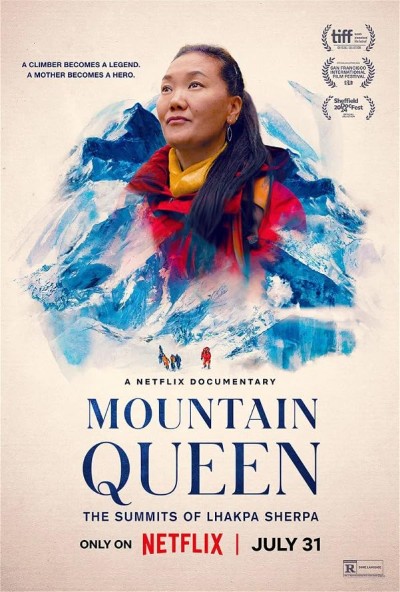 Reaching the summit of Mount Everest once is a remarkable achievement, done by only a few thousand people in history, with hundreds having died in the attempt. But what about climbing the world’s highest peak on no less than
Reaching the summit of Mount Everest once is a remarkable achievement, done by only a few thousand people in history, with hundreds having died in the attempt. But what about climbing the world’s highest peak on no less than 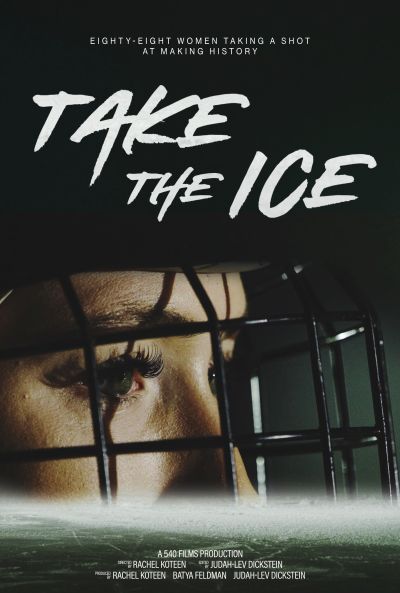 There’s no doubt that women’s sports very much plays second fiddle to their male equivalent, though the gap varies from sport to sport. The WNBA is experiencing a surge of popularity, though the NBA is still a financial behemoth. This documentary focuses on ice-hockey, and the debut season in 2015 of the first professional women’s competition in the US, the National Women’s Hockey League. Though
There’s no doubt that women’s sports very much plays second fiddle to their male equivalent, though the gap varies from sport to sport. The WNBA is experiencing a surge of popularity, though the NBA is still a financial behemoth. This documentary focuses on ice-hockey, and the debut season in 2015 of the first professional women’s competition in the US, the National Women’s Hockey League. Though 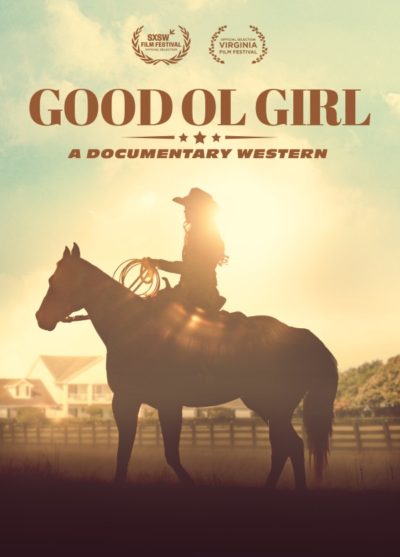 This documentary takes a look into the lives of three women in Texas, who are all operating in the male-dominated world of ranching. Some were born into it, while others came to it through choice. In particular, Mandy Dauses falls into the latter category, having left her East-coast home because she felt that Texas represented the best chance to fulfill her ambition of becoming a ranch manager. On the other hand, Sara Lemoine Knox is struggling to balance what she feels is an obligation to carry on in the family business, with her own goal of becoming a lawyer. Meanwhile, Martha Santos is looking to find work in that line, but without her own property, is finding it a challenge.
This documentary takes a look into the lives of three women in Texas, who are all operating in the male-dominated world of ranching. Some were born into it, while others came to it through choice. In particular, Mandy Dauses falls into the latter category, having left her East-coast home because she felt that Texas represented the best chance to fulfill her ambition of becoming a ranch manager. On the other hand, Sara Lemoine Knox is struggling to balance what she feels is an obligation to carry on in the family business, with her own goal of becoming a lawyer. Meanwhile, Martha Santos is looking to find work in that line, but without her own property, is finding it a challenge. We’ve written about Griselda Blanco before. In particular, we reviewed telenovela La Viuda Negra, which was loosely based on her life and
We’ve written about Griselda Blanco before. In particular, we reviewed telenovela La Viuda Negra, which was loosely based on her life and 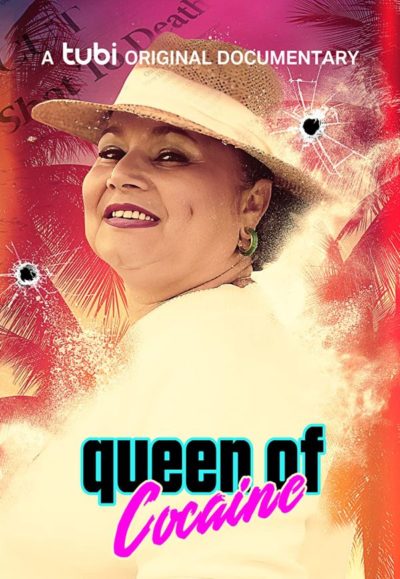 To my pleasant surprise, that’s not the case at all. Obviously, there’s a certain allure here, but it doesn’t needlessly glamourize or condemn its subject, and instead manages to do a good job of painting both sides, and depicting Griselda as a surprisingly complex character. This is particularly clear at the end, when her youngest son – named, amusingly, Michael Corleone – says of his mother, “Yes, it’s a legacy of violence. But she was a woman that had to become savage in a world that wasn’t made for her.” Then Detective Diaz, who headed the Miami task force charged with bringing her down, counters, “We have this bitch from hell who decides she wants to be meaner and more powerful than anybody else… Violence. Arrogance. Greed.
To my pleasant surprise, that’s not the case at all. Obviously, there’s a certain allure here, but it doesn’t needlessly glamourize or condemn its subject, and instead manages to do a good job of painting both sides, and depicting Griselda as a surprisingly complex character. This is particularly clear at the end, when her youngest son – named, amusingly, Michael Corleone – says of his mother, “Yes, it’s a legacy of violence. But she was a woman that had to become savage in a world that wasn’t made for her.” Then Detective Diaz, who headed the Miami task force charged with bringing her down, counters, “We have this bitch from hell who decides she wants to be meaner and more powerful than anybody else… Violence. Arrogance. Greed. 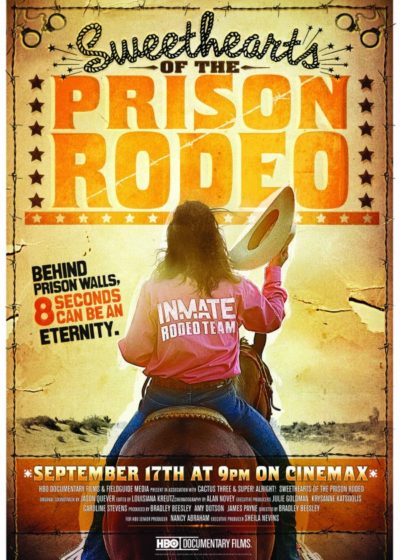 Well, this is certainly the first film I’ve reviewed here which drops both into the “women in prison”
Well, this is certainly the first film I’ve reviewed here which drops both into the “women in prison” 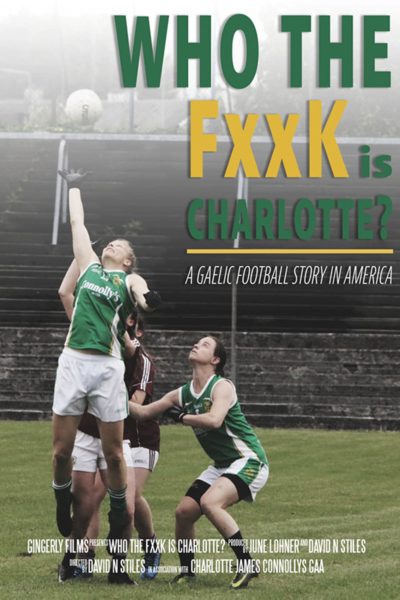 The Charlotte club was formed in 2000, and based on what we see here, is as much a social organization as a sports club. There does appear to be quite a lot of consumption of adult beverages. But there’s no doubt, they take the sport seriously, and recruit from all round the area, both Irish and American players. On North America, teams can bring in experienced players from Ireland, known as “sanctions”, to help grow the sport. But some clubs do that to excess: Charlotte refuse to go that route, putting their team at a potential disadvantage compared to Boston, or their arch-rivals from San Francisco, the Fog City Harps. The film follows Charlotte as they develop their team, and take part in the 2016 and 2017 senior women’s tournament, for the best sides in North America.
The Charlotte club was formed in 2000, and based on what we see here, is as much a social organization as a sports club. There does appear to be quite a lot of consumption of adult beverages. But there’s no doubt, they take the sport seriously, and recruit from all round the area, both Irish and American players. On North America, teams can bring in experienced players from Ireland, known as “sanctions”, to help grow the sport. But some clubs do that to excess: Charlotte refuse to go that route, putting their team at a potential disadvantage compared to Boston, or their arch-rivals from San Francisco, the Fog City Harps. The film follows Charlotte as they develop their team, and take part in the 2016 and 2017 senior women’s tournament, for the best sides in North America.  Football is known as “The beautiful game,” but you wouldn’t know it based on this documentary, which seems perversely intended to remove anything like that from its topic. It focuses on
Football is known as “The beautiful game,” but you wouldn’t know it based on this documentary, which seems perversely intended to remove anything like that from its topic. It focuses on 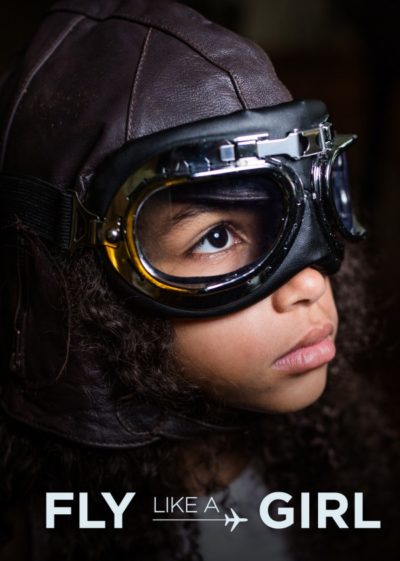 This documentary is about the field of women in aviation, combining archive footage with interviews, covering the range from those who aspire to fly (giving their Lego aircraft lady pilots!) to those who have been into space, fought combat missions in the Middle East or dodged death in aerobatic displays. There’s not any particular structure to proceedings, choosing instead to bounce around between its topics and subjects. This helps keep things fresh, yet at the cost of any narrative beyond, I guess, “Women can do anything men can”? Which, to be fair, deserves saying in the aviation field particularly: how much strength is needed to handle a joystick?
This documentary is about the field of women in aviation, combining archive footage with interviews, covering the range from those who aspire to fly (giving their Lego aircraft lady pilots!) to those who have been into space, fought combat missions in the Middle East or dodged death in aerobatic displays. There’s not any particular structure to proceedings, choosing instead to bounce around between its topics and subjects. This helps keep things fresh, yet at the cost of any narrative beyond, I guess, “Women can do anything men can”? Which, to be fair, deserves saying in the aviation field particularly: how much strength is needed to handle a joystick?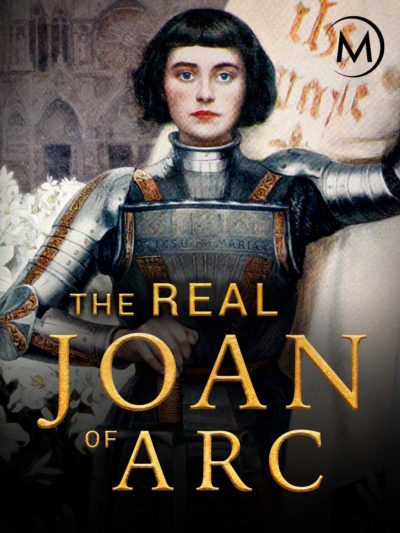 Pun mot intended, but the reality is, we know very little for sure about Joan of Arc. Not even what she looked like in detail, for there are no surviving portraits of her, dating from when she was alive. The facts about her life are equally as uncertain, because everything about Joan was subject to spin, depending on who was talking, when they were saying it, and what agenda they sought to achieve. Because everybody involved
Pun mot intended, but the reality is, we know very little for sure about Joan of Arc. Not even what she looked like in detail, for there are no surviving portraits of her, dating from when she was alive. The facts about her life are equally as uncertain, because everything about Joan was subject to spin, depending on who was talking, when they were saying it, and what agenda they sought to achieve. Because everybody involved